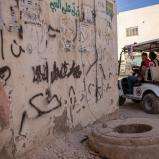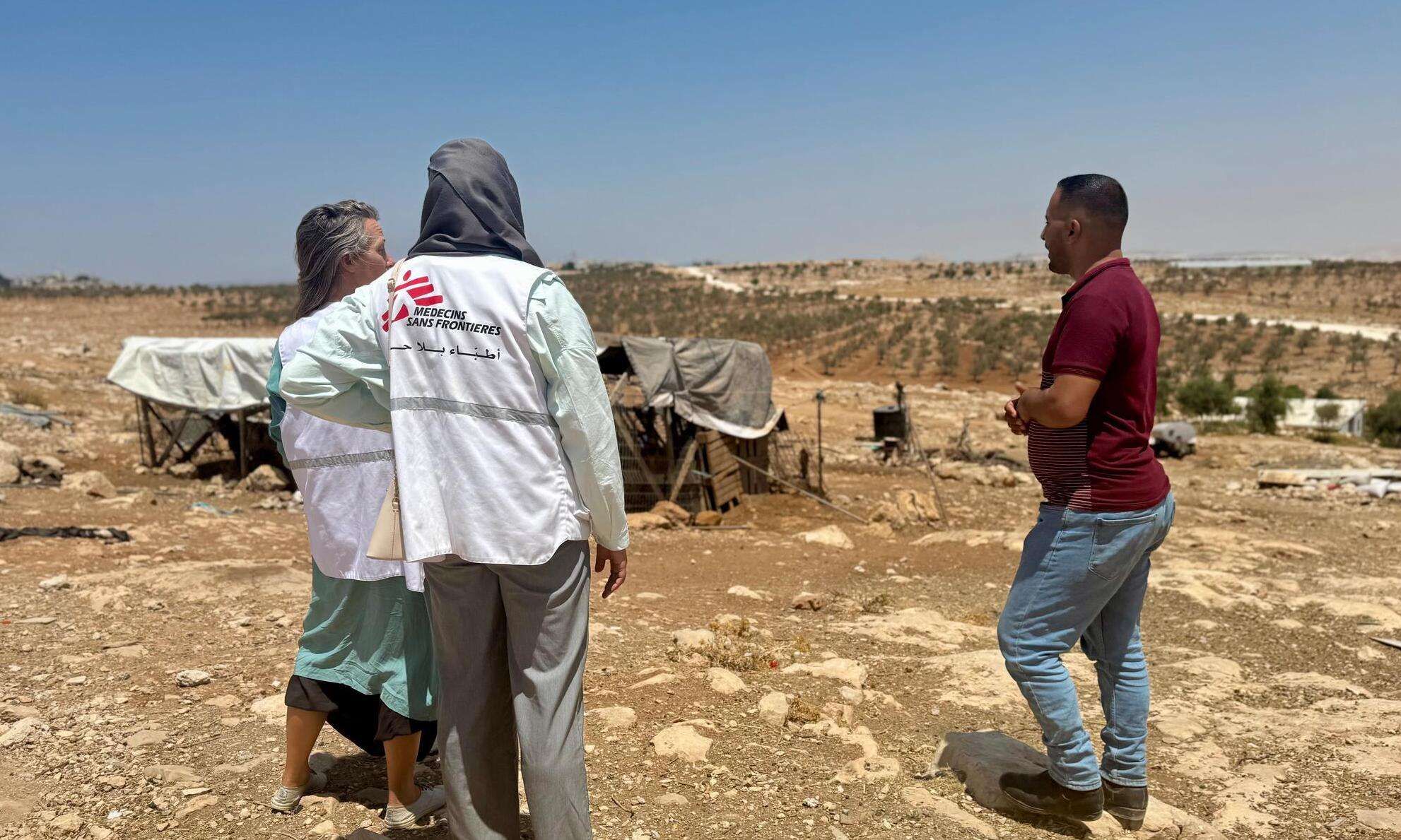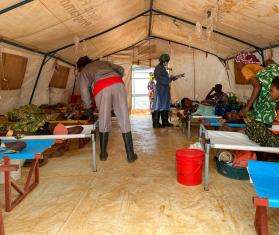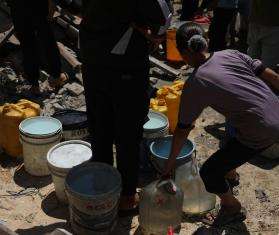Across the West Bank, Palestinians are facing forced mass displacement by Israeli forces and settlers, significantly heightening the risk of ethnic cleansing in the occupied territory, warns Doctors Without Borders/Médecins Sans Frontières (MSF). This comes amid recent calls by Israeli authorities for the country to annex the West Bank.
More than at any point in its 36-year history of providing medical and psychological care in Palestine, MSF sees how the suffering wrought by the Israeli occupation has become normalized.
In 2025, MSF teams witnessed policies and practices that are blatantly designed to remove Palestinians from their land and prevent any possibility of return. MSF urges states with close political, military, or economic ties to Israel—including the US and European Union member states—to apply meaningful pressure to halt practices that harm and forcibly displace Palestinians, and to ensure an end to the occupation that is illegal under international law.
“Over the past few years, we have seen the impact of the Israeli forces and settlers exerting increased force and control over the Palestinian people—culminating in a genocide in Gaza, and military repression and settler violence escalating across the West Bank,” says Simona Onidi, MSF project coordinator in Jenin and Tulkarem.
“These actions are entrenched in the broader settler-colonial process, where the risk of ethnic cleansing—through the forced removal of Palestinian communities—will cement permanent demographic change,” says Onidi.
Tactics of displacement are expanding and intensifying
The recently approved E1 settlement plan would completely bisect the West Bank, block off the north from the south, and separate East Jerusalem from the rest of the West Bank. This is one of the clearest recent attempts by the Israeli authorities to kill any prospect of a Palestinian future.
In the West Bank, Palestinians are facing forced mass displacement
Militarized operations have displaced tens of thousands
Since the beginning of the year, Israel’s ongoing Iron Wall militarized operation has forcibly displaced 40,000 people in the northern West Bank, according to UNRWA. Three refugee camps have been violently raided and emptied. Homes and civilian infrastructure, including schools and health care centers, have been demolished, increasing the likelihood that the displacement will become permanent.
In response, MSF deployed mobile medical teams across 42 sites in Tulkarem and Jenin, including to Ministry of Health clinics, and delivered key relief items to displaced Palestinians.
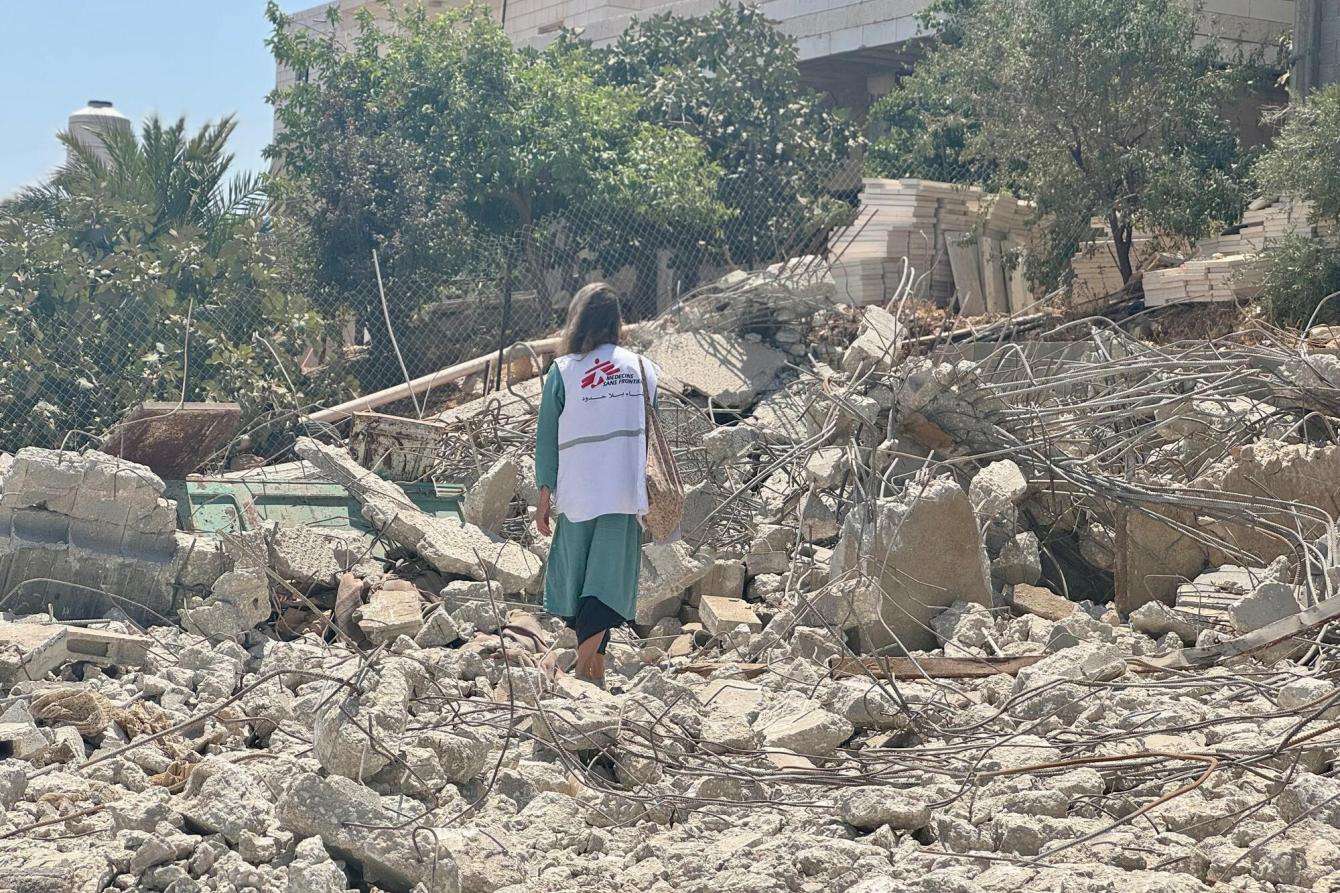
Israeli forces are destroying Palestinian homes
Between January 1, 2024 and May 31, 2025, 2,825 Palestinians have been displaced due to home demolitions, according to OCHA. In April and May 2025 alone, MSF provided material and mental health support to residents in 12 locations in the Hebron governorate whose homes were demolished. Two hundred forty-six people, including at least 97 children, were forcibly displaced.
This represents only a fraction of the number of demolitions that have been carried out in the West Bank in the same period. “This is not the first demolition or army incursion that has happened in the village, but this time was the most aggressive,” says Warda*, a community member in Hebron. “We asked them if we could retrieve our belongings and take some things out of the houses before they demolished them, but they refused. They took our things out of our home, they drove over them with the bulldozer and destroyed them.”
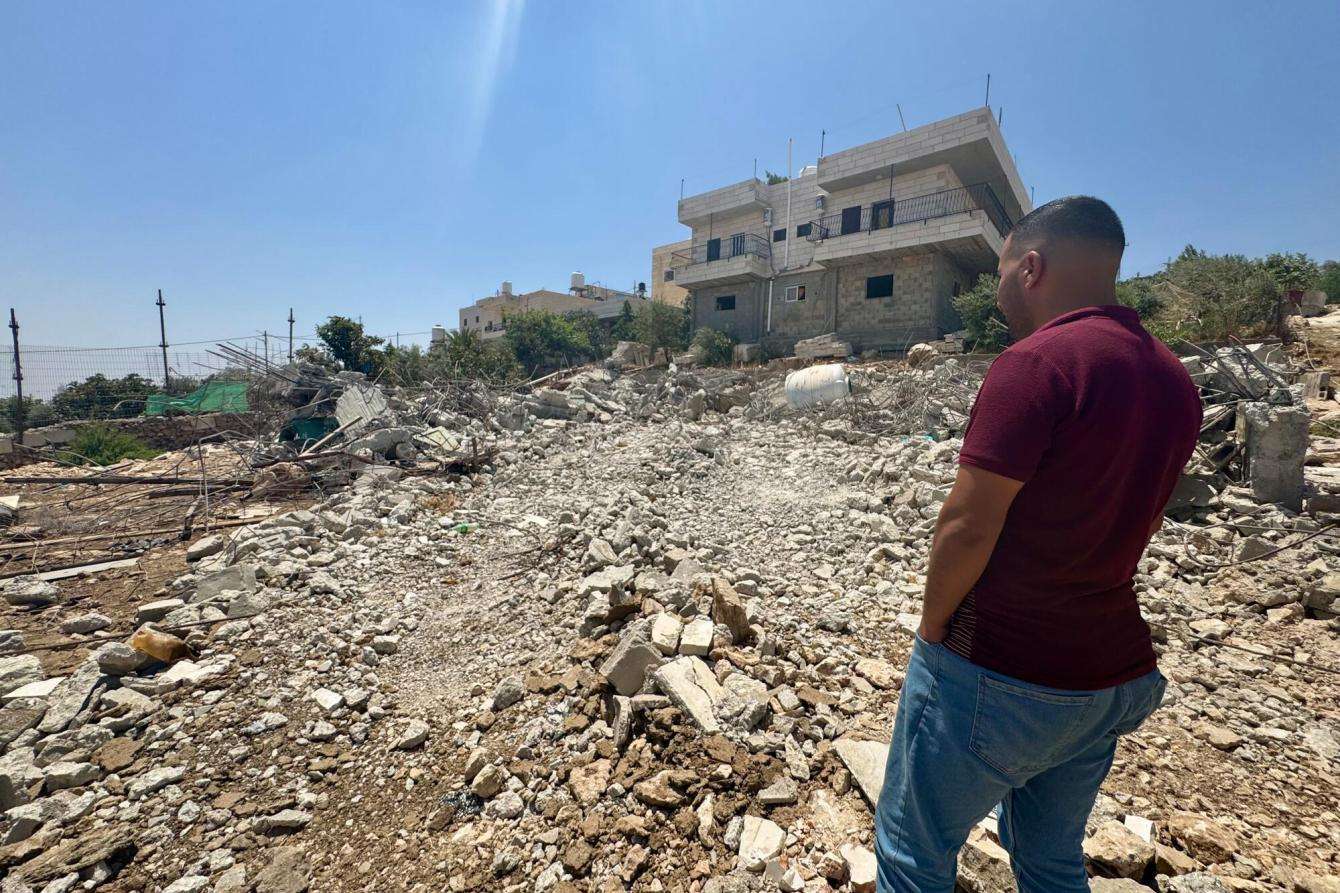
Settler violence continues with impunity
Settler attacks, often carried out with total impunity and under army protection, are also causing increasing levels of displacement. Since the beginning of 2023, nearly 2,900 Palestinians have been displaced due to settler violence and movement restrictions blocking Palestinians from essential services. Since June 2025, most of the villages in Masafer Yatta have faced daily settler attacks and military searches.
In an assessment among 197 households in Hebron governorate, MSF found that households with at least one member exposed to violence were 2.3 times more likely to exhibit severe mental distress, with 28.1 percent of families reporting that at least one member had experienced violence in the past three months.
Yousef Ubayat, a resident of Kisan
" They threatened to cut off our heads"
I was living my life at ease, but when the settlers came, they destroyed everything for me. They left me with nothing, for years, settlers attacked us with their flocks and stones. They threatened to cut off our heads.
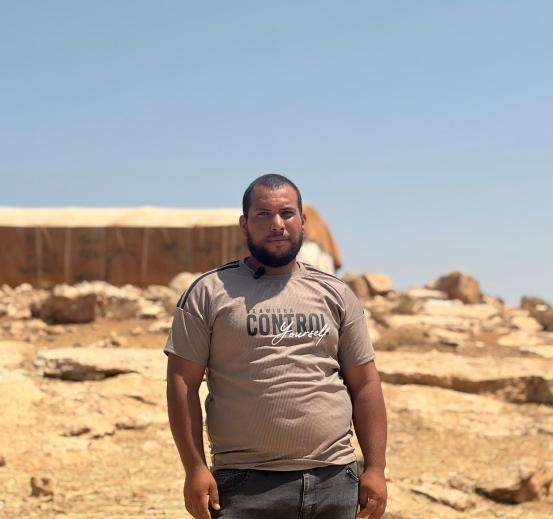
Increased movement restrictions are blocking access to health care, school, and work
Palestinians in the West Bank are also subjected to overwhelming physical barriers designed to make life unviable and push them from their lands. These include movement restrictions such as checkpoints, which have increased in number, including 36 new checkpoints established from December 2024 to February 2025 alone. Temporary checkpoints, which can appear unpredictably, have also increased—from 116 between October and December 2023 to 370 between January and April 2025. These restrictions are directly impacting people’s access to health care, schools, work, and other essential services. As a result, many patients are turning to MSF mobile clinics rather than attempting to reach hospitals, even when specialized care is needed.
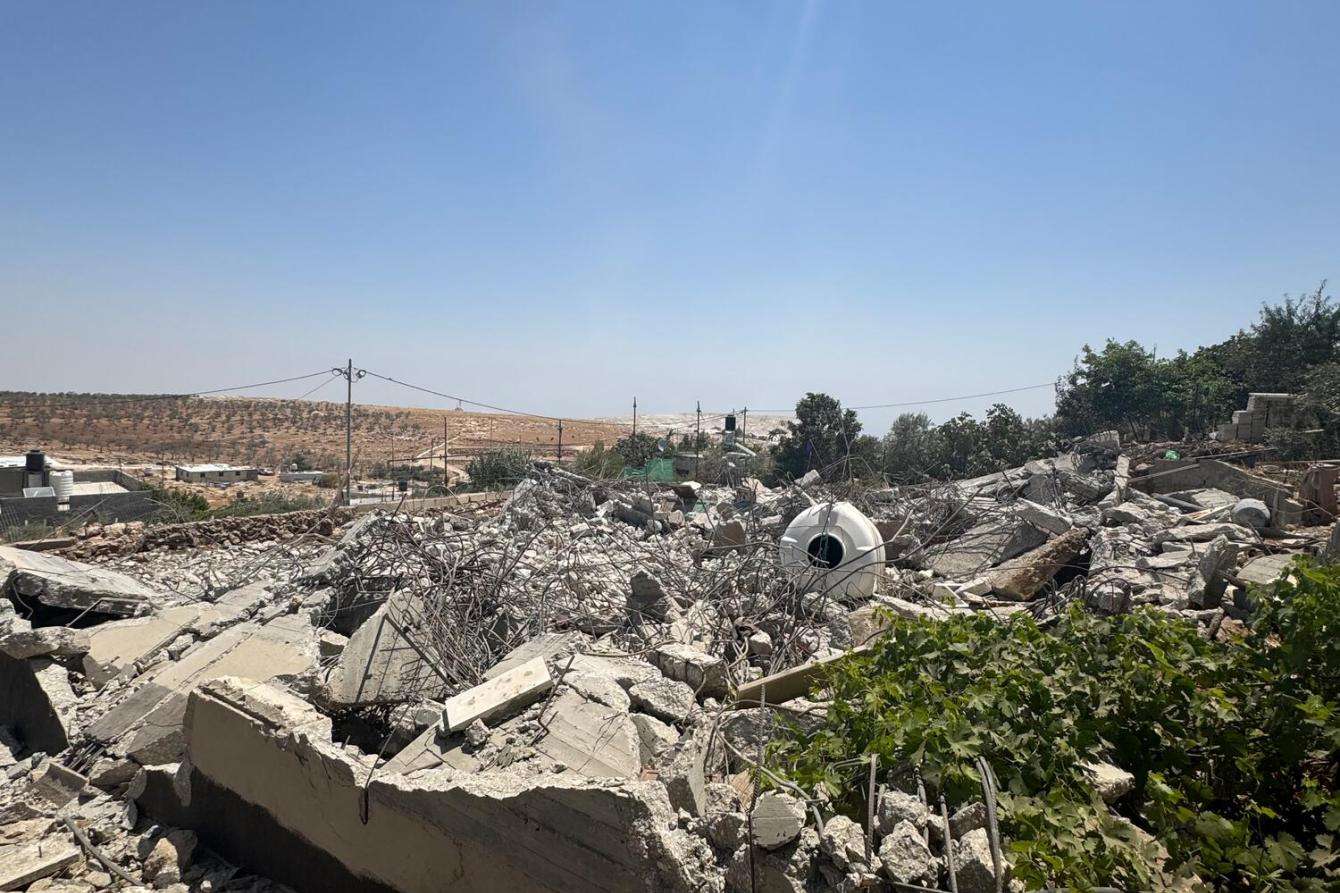
Attacks on water endanger entire communities
Palestinians in the West Bank face severe limitations on basic services, including water—access to which is controlled by the Israeli authorities. Since May 2025, there has been a substantial reduction in the water supply by an Israeli water company through two main Israeli pipeline connection points to Hebron governorate, which has reduced the public water supply in Hebron by more than 50 percent, affecting nearly 800,000 people.
MSF has also responded to reports of settlers cutting water pipes—including confirmed incidents in August 2025, such as in a village in South Hebron Hills, where 50 percent of the community was impacted by the water shortage. The need in these areas is now so high and widespread that MSF’s emergency water and sanitation activities are no longer sufficient. MSF teams have delivered 30 water tanks to families in South Hebron Hills to help store the limited trucked water they rely on.
Loss of land, work permits, and freedom of movement is destroying Palestinian livelihoods
Palestinians’ livelihoods are also increasingly threatened by the cancellation of work permits, movement restrictions that block access to jobs, and attacks on agricultural land and shepherds, further undermining their ability to sustain themselves.
“It’s not only about demolishing our houses,” says a community member in Masafer Yatta. “They also take our land, they try to steal our income and make it impossible for us to live here. All the people here live from farming and sheepherding activities. But the settlers prevent us from grazing our sheep, so that we can’t make a living anymore if we stay here.”
Israel’s annexation-driven policies in the occupied West Bank constitute serious violations of international humanitarian and human rights law. An end to the occupation remains the only path to alleviating the profound hardship faced by Palestinians.
*Name has been changed
